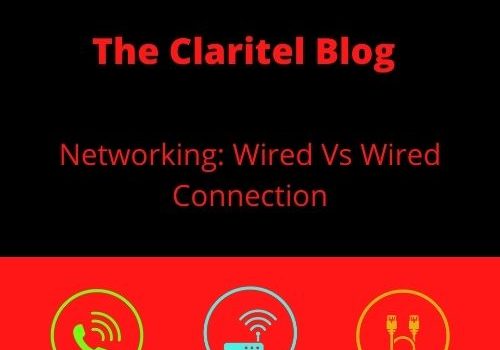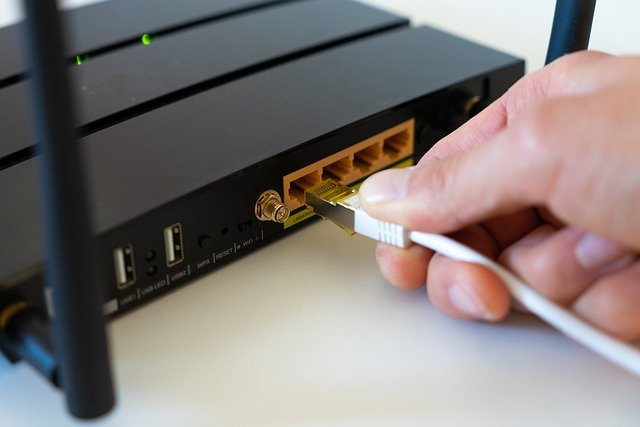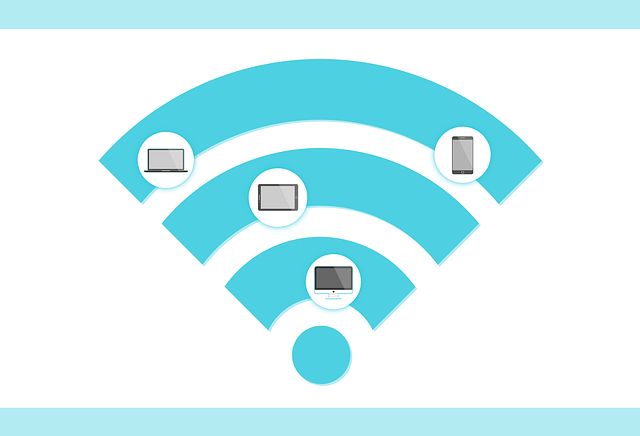
Everyone seems to have an opinion on the age-old question for businesses and personal use. Which is the best connection type to use and why. As technology furthers and improves, we are told one is always better than the other. Today we will talk about which we believe is better and the pros and cons of both.
Wired Connection
Pros
Wired connection is having a physical wire connect from your device that you are using to a device that will be connected to your router, either via a switch, or ports that could be coming from the wall if you have wires going around your office.
The advantages of this are faster speeds, meaning you will get lower latency. This will then improve traffic flowing internally between the network and improve internal file sharing speeds, as well as uploading and downloading data from the NAS drive.
This is because you are plugged directly into the router. Meaning you should be getting close to the speeds that were promised by the manufacturer of your router.

Also, another great advantage of a wired connection, is the reliability that you will get, you will get no connection drops, unless there is an outage in the office or building you are in.
Furthermore, the VoIP (Voice Over Internet Protocol) phones that you will use in your office, will all be connected to the internet via a cable. This is a feature for all the VOIP phones that are available to you unless you were to purchase a cordless phone.
Along, with wired connections you will have 1-to-1 connection with your router, meaning that requests can be instantaneous with no delay or hold-ups.
Cons
Although, a wired connection can be brilliant, it can have its downsides. One of the major ones is cable management. This is because you will need to connect every device to the router so that they can have the benefit of the wired connection. So, if you have a large office with multiple devices, cables will need to be used all around the office to connect everyone.
Another, downside is the amount of people that can connect to the router. If you only have a few people, then you may be fine. However, with a large office, you will need to have a switch that can have multiple ports that will then allow more people to connect to it.
As well as all this can be very expensive, because you will need to allow for all the cabling to be fitted into your business and the infrastructure that you need to support the wired connection. This can become more expensive the more cabling that you will need to support the people and the devices that they use.
Wireless Connection
The wireless connection is having no physical wires connect from your device to your router. Your device works by sending and receiving radio waves from your router to then give you a connection.
Pros
The best benefit of the wireless connection is the freedom of manoeuvrability, meaning you can be anywhere close to the router and still have a connection to it without the need of wires plugged in to your device.

You can boost the area of your wireless connection with Wi-Fi booster or access points. These can span a large building over multiple floors and still give of a connection that allows people to connect to it wirelessly.
Likewise, another great benefit is that more people can connect to a wireless connection with a lesser amount of infrastructure in the office space needed. Meaning that it can be cheaper than having a full-scale wired connection.
Cons
One of the major drawbacks to a wireless connection is the speeds that you will receive. Although your manufacturer may promise you a high speed. With a wireless connection you will not get close to this speed no matter how close you are to your router.
On top of this another disadvantage is you may get dropouts in your connection along with slower speeds as a wireless connection is not as reliable as a wired one.
With a wireless connection you will also find that it is generally less secure than a wired in connection. This is because the signal between the device and the router travels through the air, so this means that the signal has a chance of being intercepted and stolen.
Plus, a wireless connection, it is not a 1-to-1 connection as the router connects to all devices at the same time. This means that if you send a request for router to handle at the same time as somebody else does, the router will then choose which one to deal with first.
You may not see this happen, as this can still be super-fast. But if a large amount of people is making requests at the same time, that is what may make your connection seem slower.
Wired vs Wireless Connection: Which Is Better?
To determine the best connection type for your business, depends on the needs and the requirements of your business.
If you are a small business working from home or working out of a small office having a few people using a wired connection, and the rest using Wi-Fi can be a great balance to have.
This is so there is less of a strain on the wireless connection. Meaning less bandwidth will be used. Having people use a wireless connection, will also allow people to move around the office freely, without having a loss of connection.
However, if you are a larger business, working from a more modern and larger office. Having a wired connection will work better for you, this is because multiple devices will more than likely be in use at once, meaning that you will need the reliability and the speeds of the wired connection.
Conjointly, having a wireless connection in larger offices can work great as well. You can have wireless connection in meeting rooms, or conference rooms that do not necessarily need a wired connection for devices. As people will not be using these rooms all the time.
This can be helpful for meeting rooms, as you will never have a definitive amount of people that are using this room every time. Sometimes you may have a room full of people and others just a few of you in the meeting room.
All this then leads to is if you have a wired office, you will require cables are around the meeting space and cables coming through the desk which may not be being used majority of the time.
Working in an office space myself personally as mentioned above I feel have a hybrid set up of both connections works best.
I believe having a wired connections for your desktop PC’s and VOIP phones, are crucial for your business. Having a wireless connection for laptops and meeting room means people have the freedom to move around the office without carrying cables everywhere with them.
Get In Touch
If you have any further queries regarding a Wired or Wireless connection, then give us a call at 03444128050 or likewise drop us an email at info@claritel.co.uk
Written by Christopher Holt